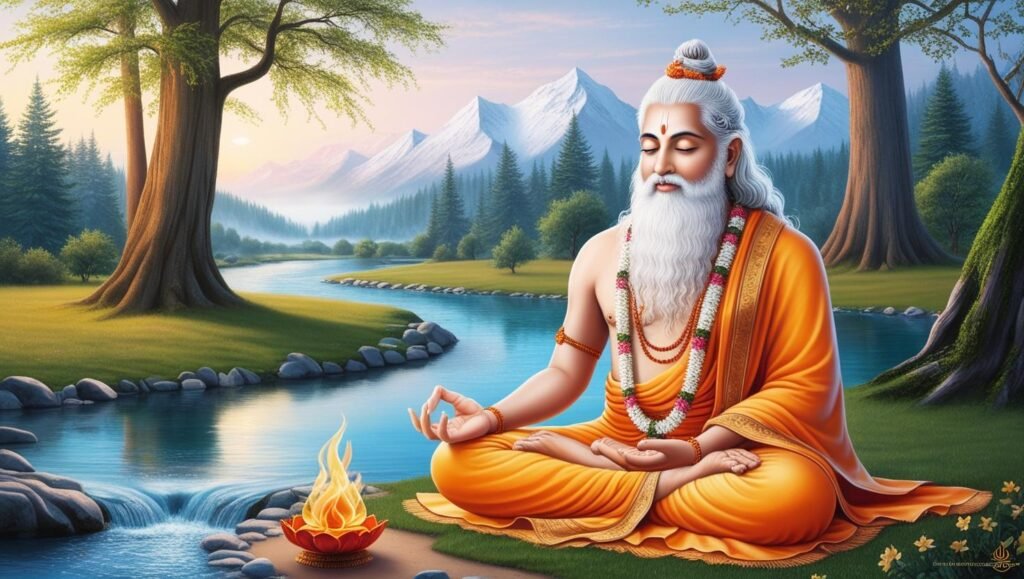Explore Gotras

Ahabhunasa: An Ancient Gotra in Hindu Tradition
The Ahabhunasa Gotra is one of the numerous Brahmin Gotras that trace their lineage back to revered sages (Rishis) from ancient Vedic times. Those who belong to this Gotra are believed to be the descendants of a great sage named Ahabhunasa, although his detailed life story is not well-recorded in mainstream Hindu texts. The Gotra system in Hinduism plays a crucial role in defining ancestral heritage, spiritual lineage, and social customs, particularly in marriage traditions.
1. Origins and Lineage
Who Was Ahabhunasa?
- Ahabhunasa is believed to be an ancient sage who contributed to the Vedic tradition.
- His name suggests a deep connection to Vedic rituals, spiritual knowledge, and righteousness (Dharma).
- While his exact role in mythology is unclear, his legacy continues through the Gotra that bears his name.
The Ahabhunasa Gotra
- This Gotra is considered part of the larger Brahminical tradition, emphasizing Vedic learning, rituals, and adherence to Dharma.
- Individuals belonging to the Ahabhunasa Gotra are considered descendants of this sage and are expected to follow spiritual discipline, ethical living, and scholarly pursuits.
2. The Role of Gotras in Hindu Society
Significance of Gotras
- Gotras serve as a spiritual and genealogical lineage system in Hinduism.
- They help maintain the ancestral purity of lineages and play a role in defining social customs, particularly in marriage.
- The Ahabhunasa Gotra, like other Gotras, is linked to ancient sages who were responsible for preserving Vedic wisdom.
Marriage and Gotra Rules
- In Hindu tradition, people from the same Gotra are considered siblings and are not allowed to marry each other to prevent close genetic relationships.
- Those from the Ahabhunasa Gotra must marry outside their Gotra but within their varna (caste) to maintain traditional social structures.
3. Ahabhunasa Gotra and Its Cultural Impact
Connection to Vedic Knowledge
- The Gotra is associated with Brahmin scholars, priests, and teachers who preserve and pass down Vedic texts, rituals, and spiritual practices.
- Those from this Gotra are expected to follow righteous conduct, self-discipline, and devotion to sacred duties.
Religious Practices
- Families from the Ahabhunasa Gotra likely follow traditional Vedic rituals, yajnas (fire sacrifices), and recitation of mantras.
- Their practices emphasize honoring ancestors, maintaining family traditions, and pursuing knowledge.
4. Advantages and Disadvantages of the Gotra System
Advantages
✅ Preserves Ancestral Lineage – Helps maintain family traditions and cultural identity.
✅ Encourages Vedic Knowledge – Many Gotra members engage in scholarly and priestly activities.
✅ Regulates Marriages – Prevents close-kin marriages to maintain genetic diversity.
Disadvantages
❌ Restrictive in Modern Society – The rule of not marrying within the same Gotra may limit choices.
❌ Misinterpretation Over Time – The original purpose of Gotras was spiritual, but over time, they became rigidly social.
❌ Lack of Recognition Outside Hinduism – In cosmopolitan settings, the concept of Gotra is often not well understood or followed.
5. Conclusion
The Ahabhunasa Gotra represents an ancient lineage in Hindu tradition, connecting its members to Vedic wisdom and spiritual discipline. Though the details about Rishi Ahabhunasa himself are limited, the Gotra system continues to play an important role in defining ancestry and marriage customs in Hindu society. In modern times, while many still follow Gotra-based customs, others adapt them to fit contemporary lifestyles. However, the essence of Gotras—as a way to preserve cultural identity and spiritual heritage—remains relevant even today.
